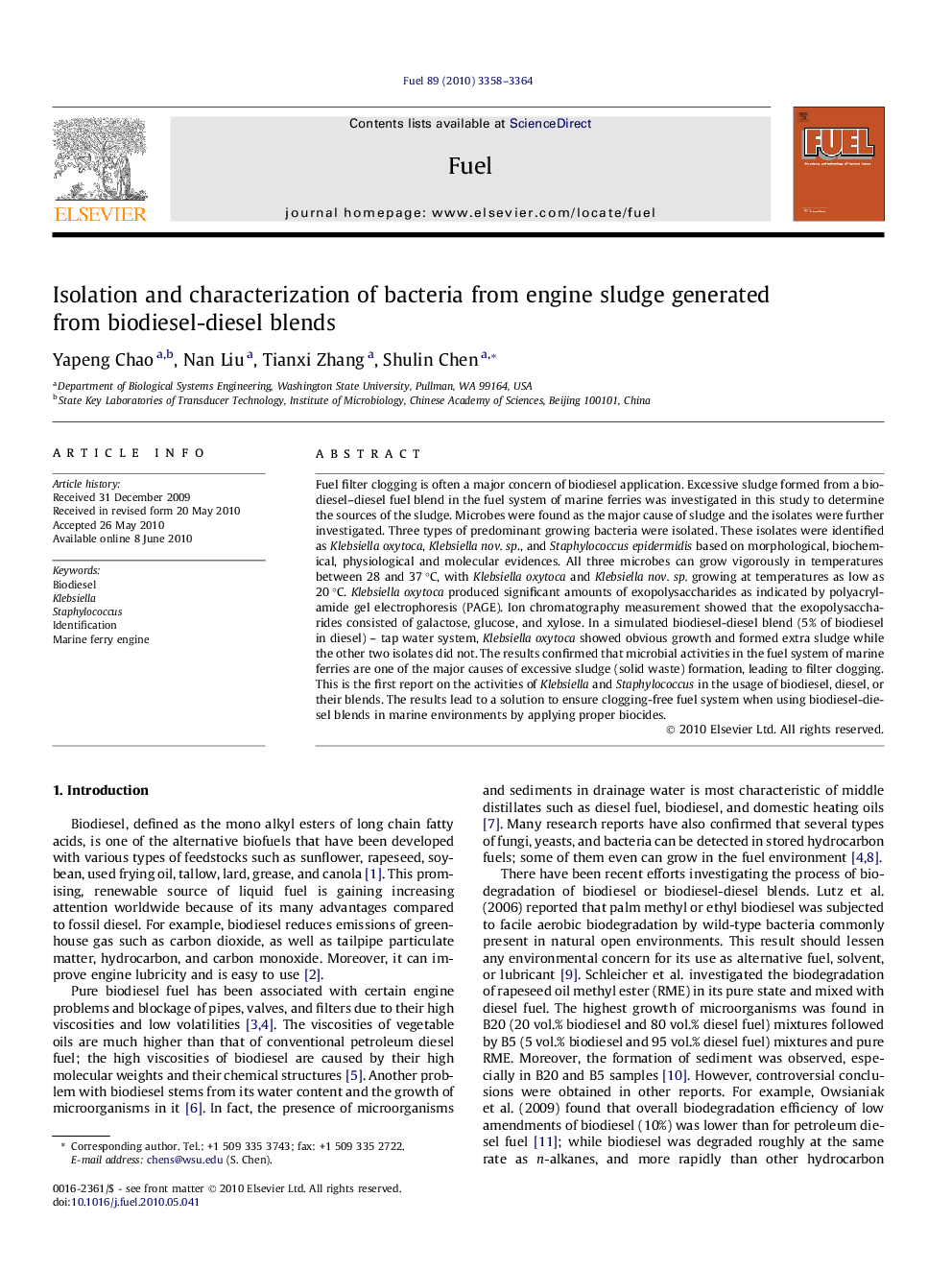| Article ID | Journal | Published Year | Pages | File Type |
|---|---|---|---|---|
| 206850 | Fuel | 2010 | 7 Pages |
Fuel filter clogging is often a major concern of biodiesel application. Excessive sludge formed from a biodiesel–diesel fuel blend in the fuel system of marine ferries was investigated in this study to determine the sources of the sludge. Microbes were found as the major cause of sludge and the isolates were further investigated. Three types of predominant growing bacteria were isolated. These isolates were identified as Klebsiellaoxytoca, Klebsiellanov. sp., and Staphylococcusepidermidis based on morphological, biochemical, physiological and molecular evidences. All three microbes can grow vigorously in temperatures between 28 and 37 °C, with Klebsiellaoxytoca and Klebsiella nov. sp. growing at temperatures as low as 20 °C. Klebsiellaoxytoca produced significant amounts of exopolysaccharides as indicated by polyacrylamide gel electrophoresis (PAGE). Ion chromatography measurement showed that the exopolysaccharides consisted of galactose, glucose, and xylose. In a simulated biodiesel-diesel blend (5% of biodiesel in diesel) – tap water system, Klebsiellaoxytoca showed obvious growth and formed extra sludge while the other two isolates did not. The results confirmed that microbial activities in the fuel system of marine ferries are one of the major causes of excessive sludge (solid waste) formation, leading to filter clogging. This is the first report on the activities of Klebsiella and Staphylococcus in the usage of biodiesel, diesel, or their blends. The results lead to a solution to ensure clogging-free fuel system when using biodiesel-diesel blends in marine environments by applying proper biocides.
